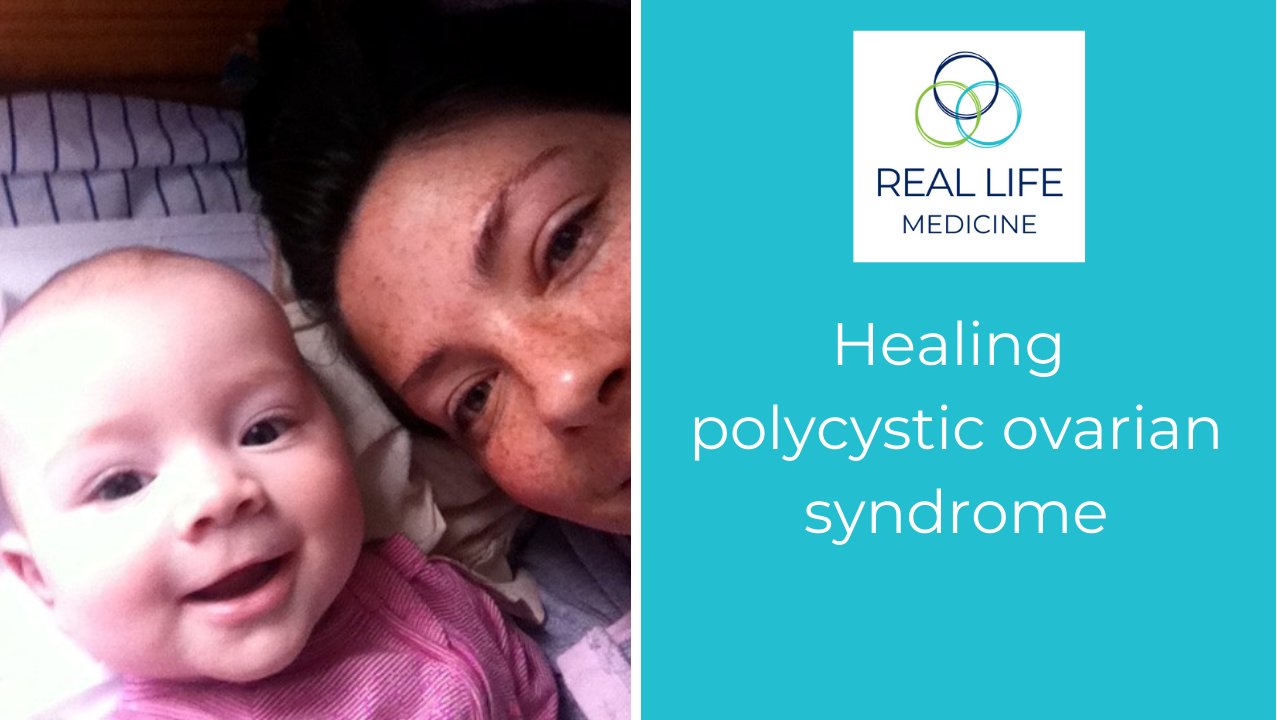
Healing Polycystic Ovarian Syndrome
Nov 09, 2021Change is possible!
When we change our behaviours, we can change our actual physical selves.
The food we eat, the thoughts we think, our sleep, and our social connectedness, all fundamentally change us right down at the cellular and molecular level.
Polycystic ovarian syndrome is a potent example of how powerful behaviour change is in altering our physical selves.
Polycystic ovarian syndrome (PCOS) is the most common hormonal disorder of women in this country, and it is not much fun. Medically it is characterised by disrupted ovulation, elevated male sex hormones, and polycystic ovaries as seen on ultrasound.
In real terms, this means women suffer with some combination of irregular periods, painful periods, unwelcome hairiness, acne, infertility, fatigue, and mood disorders. It is also very strongly associated with high insulin levels and insulin resistance. With insulin resistance comes obesity and weight gain.
The medical world can’t decide if high insulin is the cause of PCOS, a symptom of PCOS, or both. In any case, most women with PCOS have elevated insulin and a whole host of disastrous health problems that go along with that. It could even be that the increased insulin is what causes the ovaries to produce too much sex hormone, which then drives the infertility and other symptoms.
Traditional treatment for PCOS involves suppressing the individual symptoms with separate medications, such as the oral contraceptive pill to regulate periods, or fertility treatment to induce ovulation. Until recently there has been no treatment to address the underlying cause.
There is good news. Change is possible.
There is something every woman with PCOS can do. They can lower their insulin levels. Insulin is the hormone released when we eat carbohydrates (sugars and starches). Insulin can be lowered by cutting out the sugars and starches.
A whole food/low carbohydrate diet reliably lowers insulin and can reverse many of the PCOS symptoms. Some promising (but still early) data suggests low carbohydrate diets can reverse PCOS altogether.
I know this firsthand.
I had severe symptoms of PCOS all throughout my early adulthood. I was overweight, with acne and highly irregular periods. I was a health-conscious science student, then scientist, then medical student. I went to dietitians, I ate what I was told (low fat diet with plenty of wholegrains…), I went to the gym and was fit and strong… and yet I was still overweight with severe PCOS symptoms.
Of all the symptoms I suffered with PCOS, the infertility was the most heart breaking.
One day I stumbled across a low carb diet as part of the health challenge at the gym attached to my hospital. I didn’t know anything about low carb at that time. I was indoctrinated in the old carb-heavy, food-pyramid dogma from my many visits to the dietitian over the years. Despite my reservations, I gave it a go. After a horrendous 2 weeks of hideous transition symptoms (I didn’t know how to treat keto flu back then) I started to feel great. I lost weight effortlessly for the first time in my life. The increased energy and weight loss were wonderful. But what had me utterly gob-smacked was the resolution in my PCOS.
After 30 days on a low carb real food diet, my cycles normalised, my acne cleared up and my PCOS went into complete remission. This was a life-changing moment. I have been devoted to learning and understanding low carb nutrition ever since. I have dedicated my working life to helping other people heal their bodies with low carb nutrition, and nothing has ever been more professionally rewarding.
Oh, and I got pregnant! I now have a beautiful, fun, little marvel of an eight-year-old, and life could not be better.
Change is indeed possible.
Dr Mary Barson
Co-director of Real Life Medicine

